Oral Health and Brain Health: Smarter BrushingSep 12
Sep 12
Oral health and brain health share a profound connection that is often overlooked. Beyond cavities and bad breath, research indicates that gum disease, oral bacteria, and tooth loss may nearly double the risk of developing dementia. The mouth is more than just where digestion begins—it’s a gateway to your bloodstream and your brain. In this article, we’ll explore the scientific links between oral and cognitive health, the dangers of poor oral hygiene, and how tools like the BrushO AI-powered toothbrush help transform prevention into a smarter, long-term lifestyle choice.

Why Oral Health and Brain Health Are Connected 🧠
Gum Disease and Inflammation
Periodontal disease causes chronic inflammation, which doesn’t stay localized in the gums. Inflammatory molecules spread throughout the body and have been linked to memory loss and higher dementia risk.
Oral Bacteria and Cognitive Decline
Studies have found bacteria such as Porphyromonas gingivalis—a key gum disease pathogen—in the brains of Alzheimer’s patients. These bacteria escape through the bloodstream, creating long-term damage.
Tooth Loss and Brain Function
Adults with missing teeth are more likely to suffer from reduced memory and focus. Poor chewing lowers blood circulation and oxygen supply to the brain, affecting overall cognitive health.
👉 Your mouth is “upstream” in your body’s system—when it suffers, your brain feels the impact.
The Long-Term Risks of Poor Oral Care ⚠️
Ignoring daily brushing and professional care doesn’t just risk cavities:
- Dementia risk increases with untreated gum disease.
- Heart disease and diabetes often overlap with oral infections.
- Cognitive decline accelerates when inflammation becomes chronic.
- Quality of life suffers, with tooth loss impacting both confidence and nutrition.
Smarter Prevention for a Healthier Brain 🔑
Modern research makes one point clear: prevention matters more than cure. Daily oral care is a frontline defense against inflammation and bacterial spread. That’s where smarter tools step in.
How BrushO Supports Brain Health Beyond Brushing 🤖
BrushO is more than a toothbrush—it’s a platform for smarter oral health that protects not just your smile, but your cognitive future:
- Long-Term Health Tracking 📊
The BrushO app doesn’t just give instant feedback. It creates trend reports, helping users see how daily brushing habits improve gum health over months or years—a valuable tool for preventing systemic inflammation.
- Family Profiles for Multi-Generational Care 👨👩👧
Oral health isn’t only personal—it’s shared. With BrushO’s family profiles, parents can guide kids toward good habits, while adult children can support aging parents who are at greater risk of both oral and brain health issues.
- Personalized Insights That Go Deeper 📲
Beyond telling you where you missed, BrushO highlights habit patterns—like consistent overbrushing or areas prone to plaque—that correlate with gum inflammation. This data can even be shared with dental professionals for integrated care.
- Contributing to Future Research 🔬
With BrushO’s optional Oral Health Data Monetization, anonymized insights can support studies on the oral-brain connection. That means every brush doesn’t just protect you—it contributes to the wider understanding of how oral health shapes longevity.
👉 BrushO redefines prevention: not just cleaning teeth, but creating a bridge between daily care and long-term cognitive health.
FAQ: Oral Health and Brain Health
Q1: Can gum disease really affect the brain?
Yes. Research shows chronic periodontal inflammation is linked to higher dementia and Alzheimer’s risks.
Q2: Does tooth loss impact memory?
Yes. Reduced chewing lowers blood and oxygen supply to the brain, affecting cognitive function.
Q3: Can a smart toothbrush reduce dementia risk?
By lowering gum disease and improving daily prevention, BrushO reduces key risk factors. It supports prevention, though it doesn’t replace medical care.
Q4: How is BrushO different from other toothbrushes?
BrushO focuses on long-term insights, family health, and data-driven prevention, going beyond basic cleaning.
The link between oral health and brain health is too important to ignore. Gum disease and tooth loss are not just dental problems—they are risk factors for dementia, inflammation, and cognitive decline. The good news is that prevention starts with simple, daily actions. With the BrushO AI-powered toothbrush, you’re not just brushing—you’re investing in your long-term brain health, protecting your family, and even contributing to future healthcare research.
Recent Posts
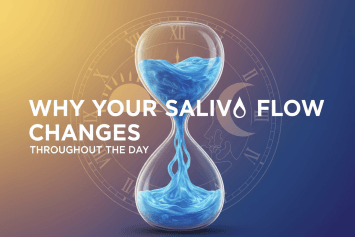
Why Your Saliva Flow Changes Throughout the Day
Saliva flow fluctuates throughout the day due to circadian rhythm, hydration, diet, and stress. Learn why it matters for oral health and how smart brushing protects teeth during low-saliva periods.
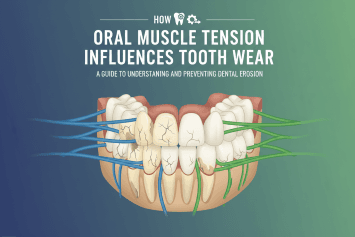
How Oral Muscle Tension Influences Tooth Wear
Oral muscle tension and jaw strain can accelerate tooth wear, enamel erosion, and gum stress. Learn how muscle habits influence dental health and how smart brushing supports long-term protection.
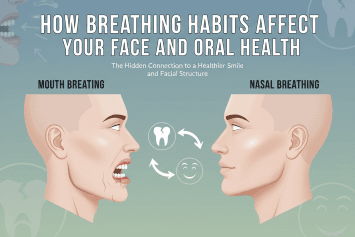
How Breathing Habits Affect Your Face And Oral Health
Discover how mouth vs nose breathing affects oral health, facial development, jaw alignment, and sleep quality — and how to protect your teeth and gums with proper habits.
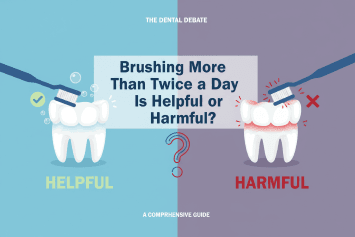
Brushing More Than Twice a Day Is Helpful or Harmful?
Is brushing more than twice daily good for your teeth? Learn how brushing frequency affects enamel, gums, and sensitivity, and discover dentist-backed guidance for safe oral care habits.
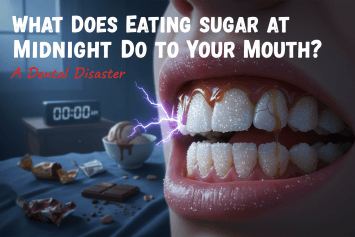
What Does Eating Sugar at Midnight Do to Your Mouth?
Discover how eating sugar at midnight affects oral bacteria, enamel health, and overall wellness. Learn why late-night snacking raises cavity risk and how proper brushing protects your teeth.

Does Early Morning Coffee Only Harm Your Teeth?
Morning coffee can stain teeth and affect enamel, saliva, and digestion. Learn how coffee impacts oral health and how to protect your smile with smart brushing habits.

How to Know Which Toothpaste Actually Suits You
Choosing the right toothpaste affects enamel strength, gum health, and sensitivity relief. Learn how to select the best toothpaste based on ingredients, needs, and brushing habits.

What Are the Bumps on the Back of Your Tongue?
Noticed bumps on the back of your tongue? Learn what they are, when they’re normal, warning signs to watch for, and how proper oral hygiene supports tongue health.

Why Most People Think They Brush Well, But They Don’t
Think you brush your teeth well? Discover why most people overestimate their brushing technique, the science behind plaque removal, and how smart tools improve oral hygiene effectiveness.

Top 5 Drinks That Quietly Damage Your Oral Health
Discover the top drinks that quietly damage oral health. Learn how sodas, juices, energy drinks, coffee, and alcohol erode enamel and increase cavity risk — plus science-backed tips to protect your smile.
